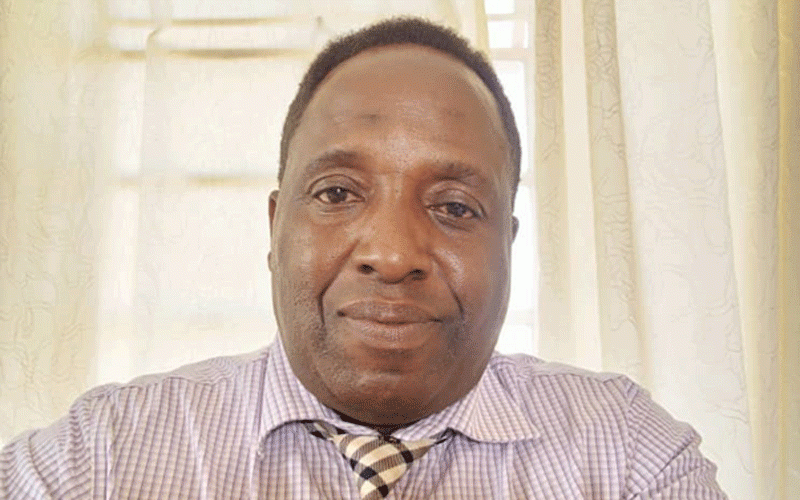
Depression has been implicated as a leading contributor to suicide and during our medical practices, so many poisons are attempted ranging from rat poison, pesticides, detergents and many more.
World Health Organisation estimates that about 264 million people of all ages suffer from depression with women being more affected than men.
Depression is, thus, a leading cause of disability worldwide and is a major contributor to the overall global burden of the disease. Close to 800 000 people die due to suicide yearly globally.
What is depression?
Depression is a mood disorder that causes a persistent feeling of sadness and loss of interest.
Depression is different from usual mood fluctuations and short-lived emotional responses to challenges in everyday life.
Affected people can suffer greatly and function poorly at school, work or at home. At its worst, suicide can come.
Symptoms of depression
- Bulawayo City fire coach Ncube
- Bulawayo City, Beefy part ways
- Zim coach in Rwanda success
- Miss Albinism vaccination drive gathers steam
Keep Reading
Episodes of symptoms occur most of the day, nearly every day and can be severe enough to cause noticeable problems in day to day activities and these may include:
- Feeling of sadness, tearfulness, emptiness or hopelessness.
- Angry outbursts, irritability or frustration even on small matters.
- Loss of interests in normal activities like sex, hobbies or sports.
- Sleep disturbances including insomnia or sleeping too much.
- Tiredness and lack of energy.
- Anxiety, agitation or restlessness.
- Feelings of worthlessness or guilt, fixation on past failures or self-blame.
- Frequent thoughts of deaths, suicide.
In children, there may be other symptoms different from adults.
Be careful with your children and as a guardian or parent check for the following symptoms on your children:
In younger children, symptoms of depression can include sadness, irritability, worry, aches, pains, refusal to go to school or being underweight
In teens, symptoms include sadness, irritability, anger, poor performance at school, using recreational drugs or alcohol, eating or sleeping too much, loss of interest in normal activities, avoidance of social interaction.
Risk factors for depression
Depression often begins in the teens, 20s or 30s although it can come anytime.
There are some factors that increase the risk of developing depression and these include:
- Personality traits such as low self-esteem, being self-critical or pessimistic.
- Traumatic events such as physical or sexual abuse, bereavement.
- Stressful events which include financial problems, difficult relationship.
- Alcohol or drug abuse.
- History of depression in the family.
- Serious or chronic illness, including cancer, stroke, chronic pain or heart disease.
- Certain medications like opiates or sleeping tablets like diazepam.
Prevention
- Although there is no sure way of preventing depression, the following strategies may help:
- Take steps to control stress: Increase your resilience and boost your self-esteem.
- Reach out to family and friends especially in times of crisis in a bid to come up with solutions.
- Get treatment at the earliest sign of a problem to help prevent depression from worsening.
- Avoid drug abuse.
- Plan and budget well in order to avoid unexpected financial disasters.
- Remain prayerful. Remember God has solutions to our problems.
- Consider long-term maintenance treatment to prevent a relapse of symptoms.
Diagnosis
Clinicians may determine a diagnosis of depression based on:
Physical examination: Can be done and questions asked about your health. In some cases, depression may be linked to underlying conditions like HIV and Aids. Proper counselling may be required then.
Blood tests: Common tests like thyroid function tests and full blood count can be taken.
Psychiatric evaluation: Your mental health professional asks about your symptoms, thoughts, feelings or behaviour patterns.
Treatment
Medications and psychotherapy are effective for most people with depression. Many people with depression benefit from seeing a psychiatrist, psychologist or other mental health professional.
Drugs include serotonin reuptake inhibitors like fluoxetine, paroxetine, sertraline, Tricyclic antidepressants like Imipramine, Amitriptyline, Trimipramine, Monoamine oxidase inhibitors like Phenelzine, Isocarboxazid.
Find your clinician to assess you. This is January for everyone. Do not get depressed because of financial issues. School fees are imminent and food is needed at home. Take the best financial decisions which will not be detrimental to your health. Do not commit suicide merely because you have gone for two weeks without eating beef, be careful beef can increase your cholesterol levels with resultant heart attack!
Know your health in 2020.
- Dr Johannes Marisa is a medical practitioner, an educationist and a public health expert who can be reached on doctormarisa@gmail.com










